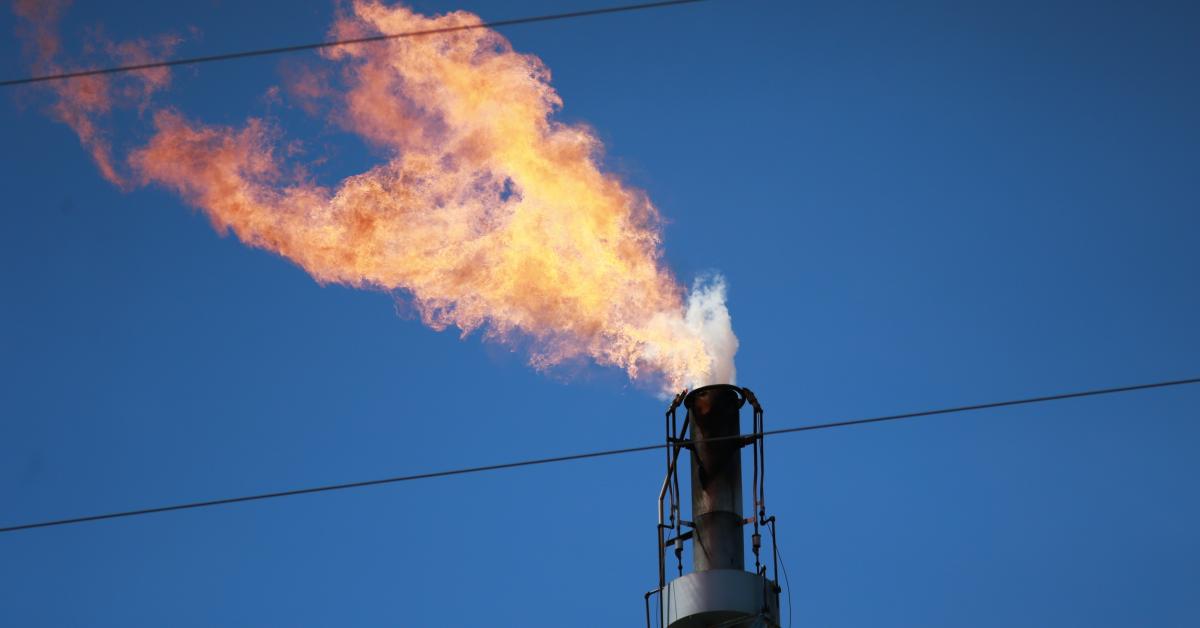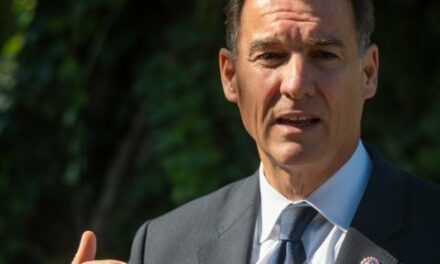We support our Publishers and Content Creators. You can view this story on their website by CLICKING HERE.

The Biden-Harris administration had been a champion of an extensive climate agenda. Not only did Democratic candidate Kamala Harris lose the presidential election to former President Donald Trump, a man who has called “climate hysteria” a “hoax,” voters in two Harris stronghold states rejected anti-fossil fuel measures.
In 2019, Berkeley, California, became the first city in the U.S. to ban natural gas hookups in new construction. The Sierra Club, which is managing $1 billion from billionaire Michael Bloomberg to fund a campaign to prevent consumers from accessing fossil fuels, hailed the move and kept a running tally on other California cities that followed with similar legislation. However, the Ninth Circuit Court of Appeals struck down the ban, and then rejected a request for a rehearing in February, effectively killing the law.
Undeterred, the City of Berkeley initiated a voter ballot measure this election that would have taxed the owners of buildings over 15,000 square feet based on the amount of natural gas it used annually. Voters rejected the measure 68% to 32%. Alameda County, where Berkeley is located, voted for Harris 72% to 25%, showing that even fervent Harris supporters aren’t given to anti-fossil fuel regulations.
In Washington state, where the vote for Harris currently stands at nearly 58%, voters passed ballot measure No. 2066, which repeals part of a state law expediting the state’s transition from natural gas to electricity. The ballot measure also prohibits cities and counties from banning or penalizing the use of natural gas.
“A pompous turd”
“Thus, it’s clear that even the most-liberal voters in America want to be able to use the fuels that they like, and that includes seeing that familiar blue flame on their gas stovetop,” Energy expert Robert Bryce wrote on his Substack.
However, during a post-election press briefing Wednesday, Washington’s Democratic Gov. Jay Inslee suggested he may seek court action to block the will of the voters.
“I think there’s a very good chance the court will find it was defective by violating the single-subject rule and, therefore, won’t actually be going into effect,” Inslee said. Brian Heywood, founder of Let’s Go Washington, the conservative political group that backed the measure, told KIRO radio that Islee is “arrogant” and a “pompous turd.”
While Washington voters weren’t hot on natural gas bans, 61.7% of them rejected a ballot initiative that would have repealed the states Climate Commitment Act. The 2023 act, according to The Center Square, provides for carbon auctions as part of a program designed to reduce greenhouse gas emissions by 95% by 2050. Under the CCA, emitters are required to obtain emissions allowances equal to their covered greenhouse gas emissions at quarterly auctions hosted by the state Department of Ecology, or traded on a secondary market, like stocks and bonds.
As much as liberals focus on climate change issues, polls show the issue isn’t a priority for voters. A Gallup poll released in October found that the economy is the most pressing issue influencing who they’ll vote for Tuesday, whereas climate change came in second last before transgender issues. Other polls asking voters about the economy and climate change have found similar results. A September New York Times/Siena College poll of likely voters found that 66% strongly support or somewhat support increases in domestic fossil fuel production.
Asking for greater transparency
Despite there being little evidence that voters were attracted to climate issues in the election, the Biden-Harris administration is rushing to complete a study on the impacts of liquified natural gas (LNG) exports. Citing unnamed sources, Bloomberg reports that if the study finds that LNG has higher emissions than coal, it could impede Trump’s plan to end the Biden-Harris administration’s pause on LNG export permits.
President Joe Biden enacted a pause on export permits in January, arguing it was a temporary move to further study the climate impacts of LNG exports. The decision faced Congressional opposition, as well as lawsuits. Supporters of the ban had cited a controversial study by a Cornell professor with a history of anti-fossil fuel activism, and analysis by the Breakthrough Institute found it was riddled with errors. That analysis prompted a congressional investigation into how much the Department of Energy relied on the study for its decision to pause the export permits.
The saga leaves little doubt that the DOE study will find LNG exports produce more greenhouse gas emissions than coal. The DOE is rushing to complete the study this month, according to Bloomberg, and the department won’t finalize the study until after a 60-day comment period is complete. This will leave very little time before Trump’s second administration begins on Jan. 20. If the findings are negative, it could slow down the permitting of new LNG projects.
It’s also possible that the study is already complete. The House Oversight and Accountability Committee received information that the DOE had completed a draft study in 2023 but never disclosed that information. Last month, Reps. James Comer, R-Ky; Pat Fallon, R-Texas; and Clay Higgins, R-La., wrote a letter to Energy Secretary Jennifer Granholm asking for greater transparency on the process that led to the pause, including copies of the draft study, if it exists.
A DOE spokesperson told Just the News that it’s reviewing the letter, and confirmed that it’s completing a study on the impacts of LNG. “The DOE’s process to update the analyses that informs its review of applications to authorize exports of U.S. natural gas to non-free trade agreement countries is well underway. When the updated analyses are ready, we will publish them for the public to review and provide comment,” the spokesperson said.
While the Biden-Harris administration tries to salvage what it can of its climate agenda, the American voters in the election largely moved in another direction. How far Trump moves the country in that direction will be seen next year.

 Conservative
Conservative  Search
Search Trending
Trending Current News
Current News 





